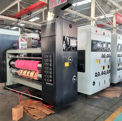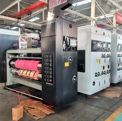
South Africa Micro Irrigation Systems Market 2024: A Sustainable Solution for Agriculture
November 28, 2024
As climate change continues to pose challenges to agriculture, innovative irrigation techniques have become critical for sustaining crop production. In South Africa,micro-irrigation systems market is experiencing significant growth in 2024, driven by the need for water conservation and improved crop yields in a country facing water scarcity issues.
Rising Demand for Water-Efficient Solutions
South Africa’s agricultural sector is heavily reliant on water, which is a precious resource in the country. With the ongoing droughts and water shortages in various regions, the need for efficient water use in farming has never been more pressing. Micro-irrigation systems, which include drip irrigation and sprinkler irrigation, offer an efficient solution by delivering water directly to the root zones of plants, minimizing water wastage and improving crop health.
The South African government, along with private sector players, has increasingly focused on promoting sustainable agricultural practices. Policies aimed at reducing water usage and enhancing food security have spurred the adoption of micro-irrigation systems, particularly in areas where water resources are limited. The government’s support through subsidies and funding programs for farmers to implement water-saving technologies has further bolstered market growth.
Technological Advancements and Growing Adoption
Micro-irrigation systems have evolved significantly over the past decade, with advances in technology that make them more efficient, durable, and cost-effective. The introduction of smart irrigation technologies, such as automated systems that use sensors and weather data to optimize watering schedules, is transforming the irrigation landscape. These innovations not only conserve water but also reduce the operational costs for farmers.
In 2024, more farmers in South Africa are adopting these advanced systems, especially in high-value crops such as fruits, vegetables, and vineyards. Micro-irrigation offers a reliable solution for small-scale and commercial farmers alike, providing a consistent water supply while minimizing evaporation and runoff. The system’s ability to target water exactly where it’s needed results in healthier crops and improved yields, contributing to the country’s agricultural productivity.
Challenges and Future Outlook
Despite the benefits, there are challenges to the widespread adoption of micro-irrigation systems. The high initial investment costs and the need for technical expertise in system installation and maintenance are barriers for some farmers. Additionally, the availability of quality components and after-sales service can sometimes be inconsistent in rural areas.
For More Info: - https://www.gmiresearch.com/report/south-africa-micro-irrigation-systems-market/
However, as the market matures and more local players enter the scene, the cost of micro-irrigation systems is expected to decrease. This, coupled with ongoing government support, will likely drive further adoption, making these systems more accessible to farmers across the country.
In conclusion, the South African micro-irrigation systems market in 2024 is on a promising trajectory. The shift towards water-efficient agricultural practices is essential for ensuring the sustainability of South Africa’s agriculture. As technology advances and support grows, the adoption of micro-irrigation will continue to play a pivotal role in transforming the sector, improving productivity, and conserving valuable water resources.
You Might Like Also

Insulin Pump Market 2024: A Growing Revolution in Diabetes Care

Pharmaceutical Packaging Market: Trends and Insights for 2024

Powder Coatings Market 2024: Trends, Growth, and Outlook

Sports Nutrition Market 2024: Growth, Trends, and Future Outlook

















